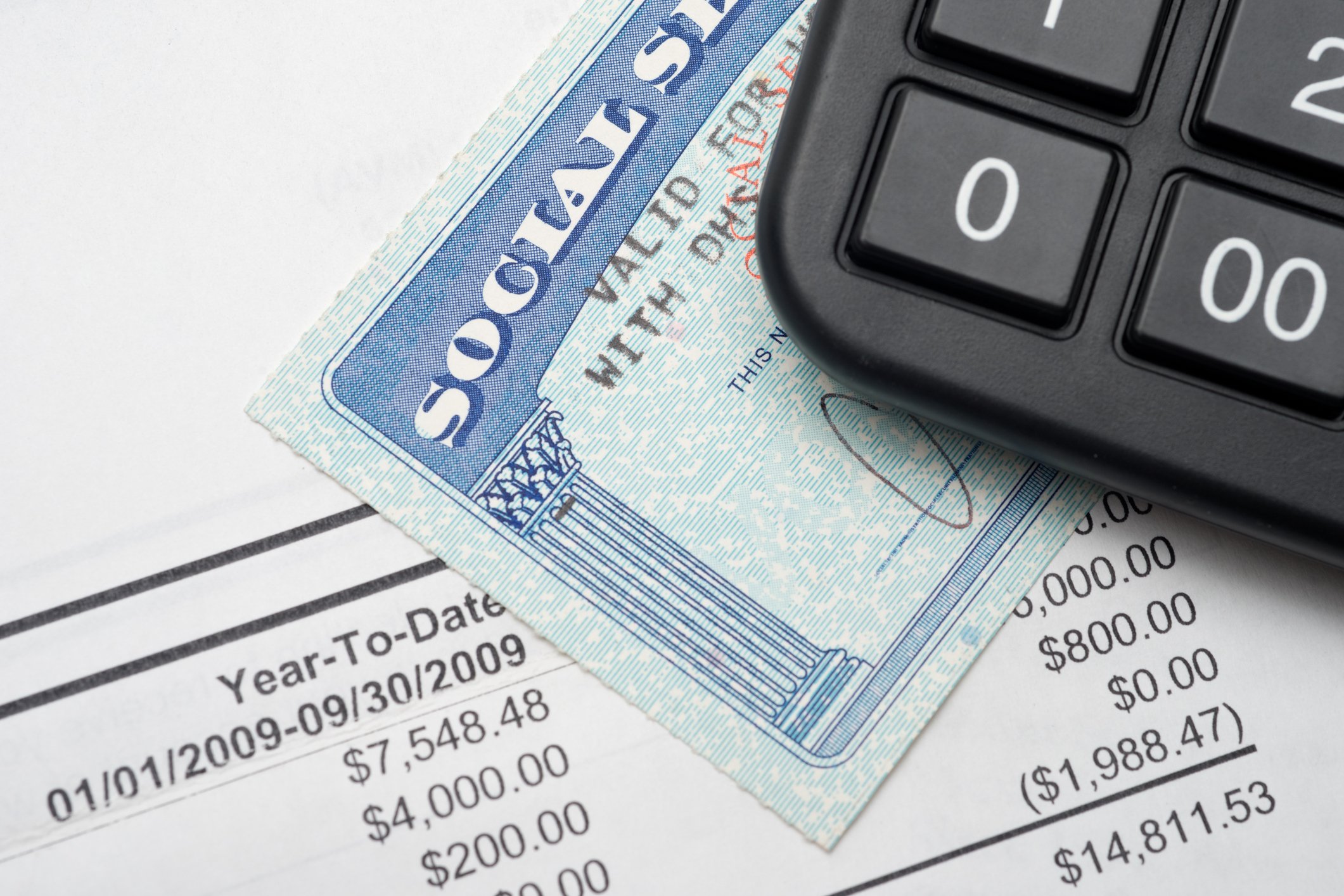Are you thinking about retiring this year? If you are, you'll need to figure out whether you want to claim your Social Security benefits immediately, and how much those benefits will actually be worth if you do.
Social Security is designed to replace around 40% of your pre-retirement income, which will leave you to cover the rest of your expenses out of your own savings and investments, and any other sources of income you might have, such as a pension from your former employer.
If you can avoid it, you don't want to quit working before those sources of income will add up to enough money for you to live on, so make sure you go through the following steps to determine what your Social Security benefits will be if you retire and file for them this year.

Image source: Getty Images.
Visit the Social Security website to find your projected benefits
Your monthly retirement benefit is based on a formula that takes into account the income you earned in your 35 highest-earning years, adjusted for inflation. This means the benefit you'll receive is directly influenced by how much you earned throughout your career. That said, there are minimum benefit amounts to ensure that qualifying retirees receive a reasonable amount of income, and there are also maximum benefits for recipients who earned at least the highest possible taxable income for the full 35 years.
You can find out what your benefits will be if you retire in 2018 by visiting the Social Security website and logging into your personalized account -- or by creating an account if you don't already have one. The Social Security website will show you what your benefit amount will be if you claim retirement benefits at three different ages: your full retirement age (FRA), age 62, and age 70. Why, you ask? Because you can file for retirement benefits as early as age 62, but for every month you delay those benefits, up until age 70, your monthly check will receive a permanent increase.
In 2018, you'd need to have been born in 1952 or earlier to have reached your full retirement age, because for those born between 1943 and 1954, FRA is 66.
If you'll be claiming your benefits in 2018 when you're exactly 62, exactly 66, or 70-plus, the Social Security Administration's website tells you everything you need to know.
Determine how age will affect your benefits
If you aren't exactly 62, 66, or 70, you'll need to do some math to determine how much you'll receive in Social Security benefits if you claim your benefits in 2018.
If you retire before your full retirement age, your benefits will be reduced by five-ninths of 1% for each month before your FRA, up to 36 months early. Beyond 36 months early, your benefit will be reduced by an additional five-twelfths of 1% per month.
For example, let's say your FRA is 66 and you claim benefits on your 65th birthday. You're 12 months ahead of schedule, so multiply 12 by five-ninths of 1%:
12 x 5/9 x 1% = 6.7%
Your benefits will be reduced by around 6.7%, giving you 93.3% of the benefit you'd receive at full retirement age.
To determine exactly how much you'd receive if you retired this year, take the number the Social Security Administration says you'll get at full retirement age and multiply it by the percentage of benefits you'll get if retiring early. If you would have received $1,800 in monthly benefits at 66 but you decided to retire at 65, you'd multiply $1,800 times 93.3% to find that you'd end up with $1,679 per month.
If you're retiring this year and you're past full retirement age, you'll get a benefit increase of two-thirds of 1% per month, assuming you were born in 1943 or later. (The increase is different for those who were born earlier; more details here.)
So you'd simply figure out how many months beyond FRA you are and multiply that number by two-thirds of 1% to figure out how much higher your benefits will be than the standard benefit.
Make sure you're confident about your Social Security claiming strategy
Before you decide to claim your Social Security benefits and turn in your notice at work, make sure you're confident about your decision. While you do have some options if you decide you claimed benefits too early, it's hard to undo your mistake, as you may have to pay back the benefits you received.
You may also want to determine whether you're eligible to claim benefits on your spouse's work record and whether doing so could result in higher benefits for you. There are many different Social Security claiming strategies for married couples, and talking to a financial advisor might be the best way to figure out the right one.
Finally, you should also carefully analyze how long your other sources of retirement income will last before you retire, as living on Social Security benefits alone isn't an option for most retirees.





